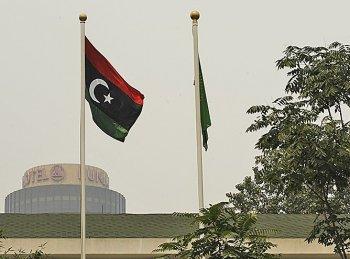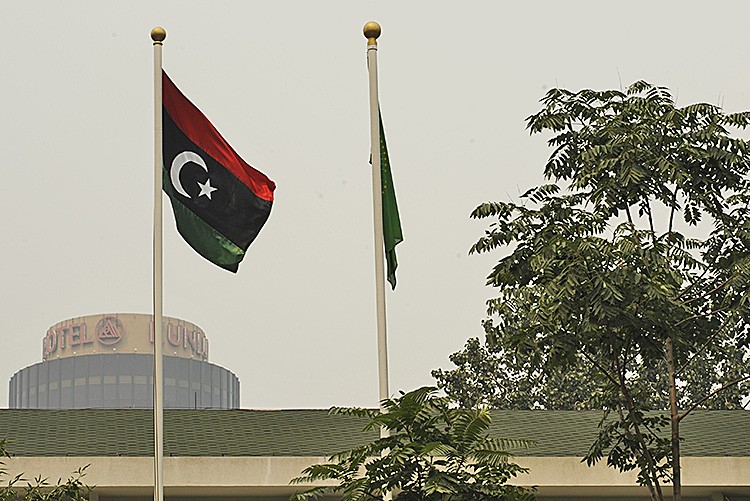Beijing’s About-Face on Libya
Beijing, flustered that a dictator lost power, now seeks to buy its way in to Libyan affairs.

The flag (L) of the Libyan transitional government flies at the Libyan Embassy in Beijing on August 23. In past months, the Chinese regime has taken contradictory stances toward the rebel's efforts to overthrow the Libyan tyranny. Peter Parks/AFP/Getty Images
|Updated:




